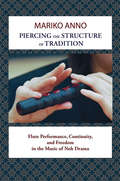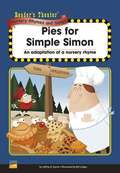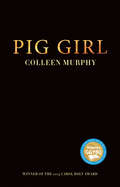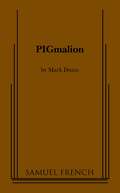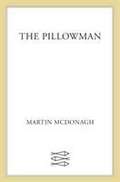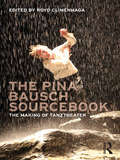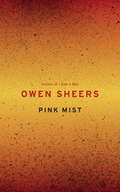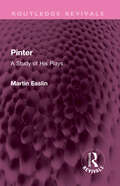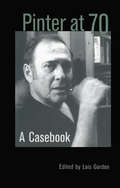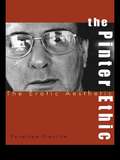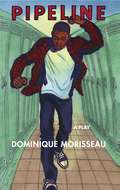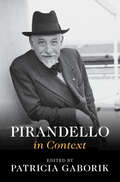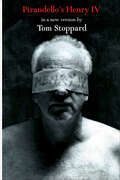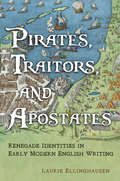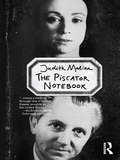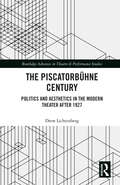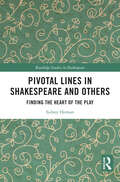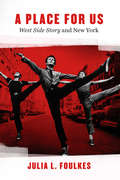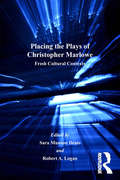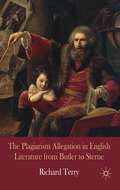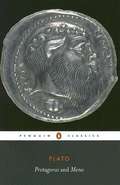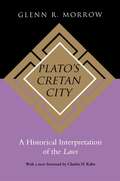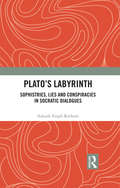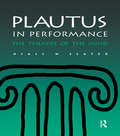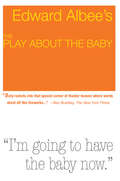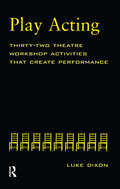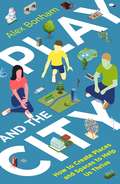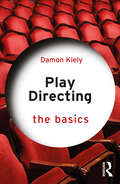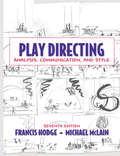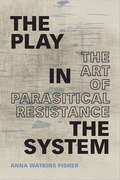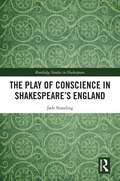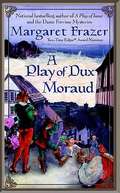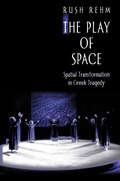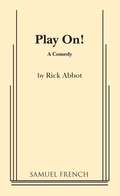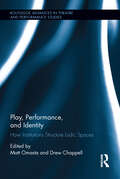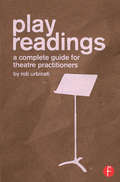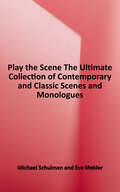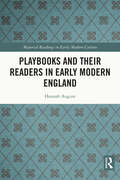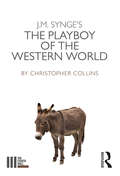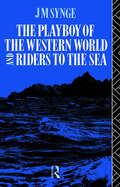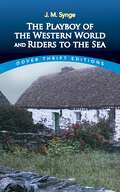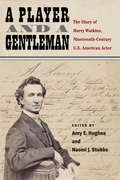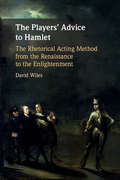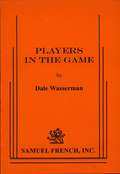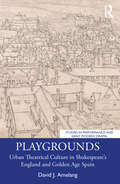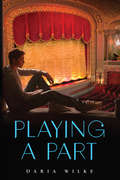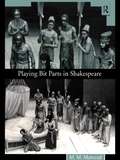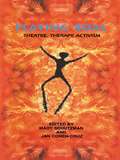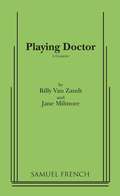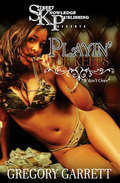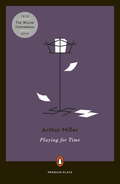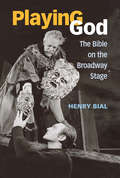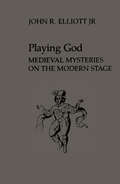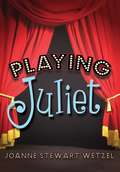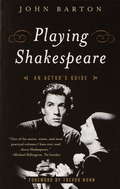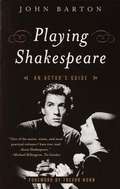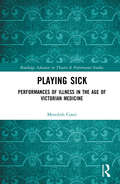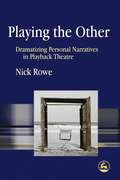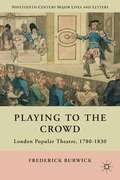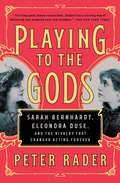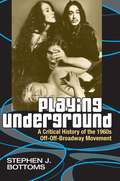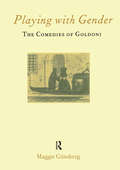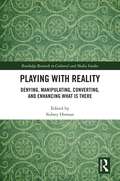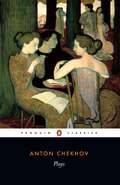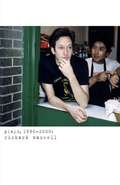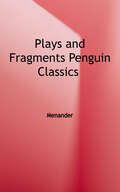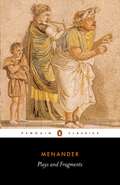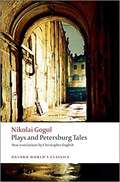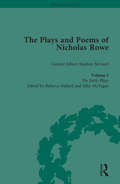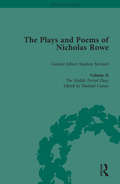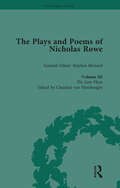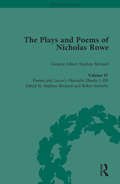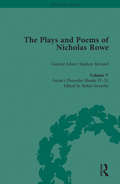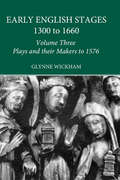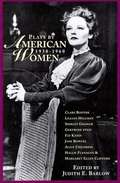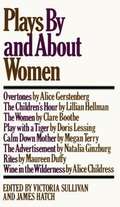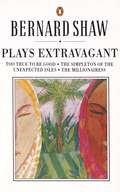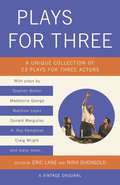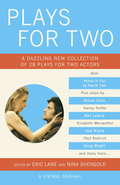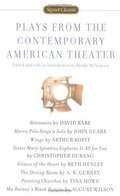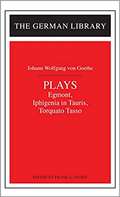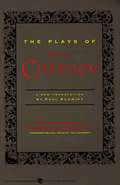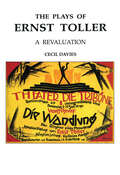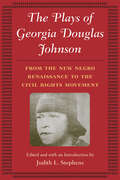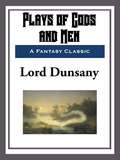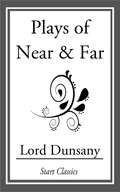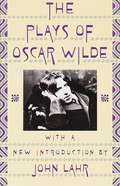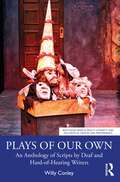Piercing the Structure of Tradition: Flute Performance, Continuity, and Freedom in the Music of Noh Drama
by Mariko AnnoWhat does freedom sound like in the context of traditional Japanese theater? Where is the space for innovation, and where can this kind of innovation be located in the rigid instrumentation of the Noh drama? In Piercing the Structure of Tradition, Mariko Anno investigates flute performance as a space to explore the relationship between tradition and innovation. This first English-language monograph traces the characteristics of the Noh flute (nohkan), its music, and transmission methods and considers the instrument's potential for development in the modern world. Anno examines the musical structure and nohkan melodic patterns of five traditional Noh plays and assesses the degree to which Issō School nohkan players maintain to this day the continuity of their musical traditions in three contemporary Noh plays influenced by Yeats. Her ethnographic approach draws on interviews with performers and case studies, as well as her personal reflection as a nohkan performer and disciple under the tutelage of Noh masters. She argues that traditions of musical style and usage remain influential in shaping contemporary Noh composition and performance practice, and the existing freedom within fixed patterns can be understood through a firm foundation in Noh tradition.
Pies for Simple Simon: An Adaptation of a Nursery Rhyme
by Jeffrey B. Fuerst Bill Ledger Carrie SmithNIMAC-sourced textbook
Pig Girl
by Colleen MurphyAt 4:00 a.m. on a secluded farm, a woman fights to take her life back from a serial killer as her desperate sister and a haunted police officer reach across time and distance in an attempt to rescue her.
PIGmalion
by Mark DunnDramatic Comedy / 9m, 8f (cross casting and double casting possible) Inspired by Pygmalion, Shaw's classic drawing room tale of language and class division, and its musical incarnation, My Fair Lady, the play tells the story of one Eliza Doolittle-the daughter of a hardscrabble Mississippi pig farmer-who sells homemade pork rinds at the Tri-Counties Fair and Livestock Show, and dreams of someday working as a waitress at "one of those nice downtown barbecue restaurants where all the tourists go." With the support of her best friend, a sassy Transgender firecracker named Miss Tiffany Box, patroness Ida Hill and her daughter Clara; and with Ida's instantly enamored son Freddy nipping romantically at Eliza's heels, Delta-drawlin' Eliza engages the services of a "Kudzu-league" college prof named Henry Higgins to take the country out of her speech and give her some semblance of class. Devotees of Shaw's original will delight in the transplantation of Eliza and Professor Higgins and his colleague Pickering to the American South. But this gentle, warm-hearted comedy gives us something else as well, a question for which everyone in the play must find the answer: how do we reconcile the way we present ourselves on the outside with who we truly are on the inside?
The Pilgrim's Progress
by John BunyanThis book, the most perfect allegory ever produced, has been more widely read in English than any other book except the Bible. The English of the book is pure and strong; but its great power lies neither in its English nor in the perfection of the allegory, but in the fact that in picturing his own religious struggles, Bunyan pictured those of other men as well. Stylistically, Bunyan combines simplicity with rare earnestness. He had something to say, and in his in most soul he felt that this something was of supreme importance for all time. He also had a rare combination of imagination and dramatic power. His abstractions became living persons. It would be difficult to find English prose that is more simple, earnest, strong, imaginative, and dramatic than this work. Bunyan's style felt the shaping influence of the Bible more than of all other works combined. He knew the Scriptures almost by heart. It is no wonder that in the allegories of the world's literature, The Pilgrim's Progress stands out as a masterpiece written to people of every age and condition.
The Pillowman: A Play
by Martin McDonaghWhile still in his twenties, the Anglo-Irish playwright Martin McDonagh has filled houses in New York and London, been showered with the theatre world's most prestigious accolades, and electrified audiences with his cunningly crafted and outrageous tragicomedies. With echoes of Stoppard and Kafka, his latest drama, The Pillowman, is the viciously funny and seriously disturbing tale of a writer in an unnamed totalitarian state who is interrogated about the gruesome content of his short stories and their similarities to a number of child-murders occurring in his town.
The Pina Bausch Sourcebook: The Making of Tanztheater
by Royd ClimenhagaPina Bausch’s work has had tremendous impact across the spectrum of late twentieth-century performance practice, helping to redefine the possibilities of what both dance and theater can be. This edited collection presents a compendium of source material and contextual essays that examine Pina Bausch's history, practice and legacy, and the development of Tanztheater as a new form, with sections including: Dance and theatre roots and connections; Bausch’s developmental process; The creation of Tanztheater; Bausch’s reception; Critical perspectives. Interviews, reviews and major essays chart the evolution of Bausch’s pioneering approach and explore this evocative new mode of performance. Edited by noted Bausch scholar, Royd Climenhaga, The Pina Bausch Sourcebook aims to open up Bausch’s performative world for students, scholars, dance and theatre artists and audiences everywhere.
Pink Mist
by Owen SheersFrom the author of I Saw a Man comes a powerful drama in verse that captures both the trauma of modern warfare and the difficulty of transitioning back to normal life after combat. In early 2008, three young friends from Bristol decide to join the army and are deployed to the conflict in Afghanistan. Within a short space of time the three men return to the women in their lives—a wife, a mother, a girlfriend—all of whom must now share the psychological and physical aftershocks of military service. Written from the points of view of each soldier, Sheers explores not only their experiences in the field of battle, but also the grueling process of recovery following a debilitating injury, the strain of PTSD on a new marriage, and the emotional toll of survivor's guilt among soldiers and their loved ones at home. Drawing on interviews with soldiers and their families, Pink Mist illuminates the enduring human cost of war and its all too often devastating effect upon the young lives pulled into its orbit. A work of great dramatic power, documentary integrity, and emotional intensity.
Pinter: A Study of His Plays (Routledge Revivals)
by Martin EsslinFirst published in 1977, the third edition of Pinter is an excellent analysis of Harold Pinter and his works. Written when Pinter was only a few plays old, the book draws on several sources, including interviews with Pinter himself, to comment on Pinter’s career, his aesthetic and philosophical choices, and his oeuvre as a writer. The section devoted to his individual plays has been arranged in a chronological manner to visually represent the growth of the playwright and the relationship shared between his early and later works. Esslin, known for coining the term ‘theatre of the absurd,’ was himself an inspiration to Pinter and hence, the book records an intellectual and creative exchange between the author and his subject. The book will be of interest to students of literature, drama, history as well as to an academically inclined theatre audience.
Pinter at 70: A Casebook (Casebooks on Modern Dramatists #Vol. 30)
by Lois GordonThis comprehensive and authoritative casebook includes cornerstone essays on Pinter's creative process, his politics, film adaptations, and acting career. It also includes a collection of photos found nowhere else that document Pinter's "golden time"--his early acting days in Ireland--, a substantial introduction, a chronology, and bibliography.
The Pinter Ethic: The Erotic Aesthetic (Studies in Modern Drama #Vol. 2237)
by Penelope PrenticeFirst published in 2000. Routledge is an imprint of Taylor & Francis, an informa company.
Pipeline
by Dominique Morisseau"Pipeline confirms Dominique Morisseau's reputation as a playwright of piercing eloquence." --Ben Brantley, New York Times With profound compassion and lyricism, Morisseau brings us a powerful play that delves into the urgent issue of the "school-to-prison" pipeline that ensnares people of color. Issues of class, race, parenting, and education in America are brought to the frontlines, as we are left to question the systematic structures that ultimately trap underserved communities.
Pirandello in Context (Literature in Context)
by Patricia GaborikFor students of Luigi Pirandello's life and works, this volume provides a multi-faceted view spanning the many genres in which he wrote, from poetry and essays to fiction and drama. It gives a true sense of Pirandello's remarkable sensitivity to place – from his native Sicily to Germany and Latin America – and of how his perspective was shaped by a wide range of interlocutors with varying professional backgrounds, from contemporary philosophers to fellow playwrights like Bernard Shaw, directors like Max Reinhardt and the actress Marta Abba. Diverse contributors explore the sheer genre-bending originality of Pirandello's humor, metatheatre, and fantastic tales, and reveal how profound shifts in society, culture, and politics in his time – Freud, Futurism, Fascism – conditioned not just his thought but also his meteoric rise to fame. A final section is dedicated to Pirandello's legacy in literature and drama throughout the twentieth century and into the twenty-first.
Pirandello's Henry IV
by Luigi PirandelloThe Italian playwright&’s masterful comedy interrogating the meaning of madness is reimagined in this translation by the author of Leopoldstadt. In this meeting of two of the twentieth century&’s greatest playwrights, Tom Stoppard has reinvigorated Luigi Pirandello&’s masterpiece exploring the nature of madness and the limits of sanity. After a fall from his horse, an Italian aristocrat believes he is the obscure medieval German emperor Henry IV. After twenty years of living this royal illusion, his beloved appears with a noted psychiatrist to shock the madman back to sanity. Their efforts expose that for the past twelve years the nobleman has in fact been sane. With his mask of madness unveiled, the aristocrat launches an offensive to deflect their unwanted attention. While Pirandello&’s characters verbally spar in Stoppardian flourishes, battling for the upper hand—and the greatest laughs—one question emerges: What constitutes sanity?
Pirandello's Theatre of Living Masks
by Umberto Mariani Alice Gladstone MarianiNobel Prize-winning dramatist Luigi Pirandello is known worldwide for his innovative, complex plays. In Pirandello's Theatre of Living Masks, Umberto Mariani and Alice Gladstone Mariani offer the first new edition in nearly sixty years of six of his major works - Liola, It Is So If You Think So, Six Characters in Search of an Author, Henry IV, Each in His Own Way, and The Mountain Giants.Mariani and Mariani's translations of these texts are both vibrant and faithful to the originals, using contemporary expressions and unambiguous language to facilitate readability and comprehension. This edition also offers a critical introduction to each play's most significant characters and structures, highlighting themes and poetics as they correspond to Pirandello's entire body of work. Pirandello's Theatre of Living Masks will appeal to those already familiar with his plays and those looking to discover one of the twentieth century's great dramatists.
Pirates, Traitors, and Apostates: Renegade Identities in Early Modern English Writing
by Laurie EllinghausenExamining tales of notorious figures in Renaissance England, including the mercenary Thomas Stukeley, the Barbary corsair John Ward, and the wandering adventurers the Sherley brothers, Laurie Ellinghausen sheds new light on the construction of the early modern renegade and its depiction in English prose, poetry, and drama during a period of capitalist expansion. Unlike previous scholarship which has focused heavily on positioning rogue behaviour within the dialogue of race, gender, religion, and nationalism, Pirates, Traitors, and Apostates: Renegade Identities in Early Modern England shows how domestic issues of class and occupation exerted a major influence on representations of renegades, and heightened their appeal to the diverse audiences of early modern England. By looking at renegade tales from this perspective, Ellinghausen reveals a renegade, who, despite being stigmatized as an outsider, becomes a major profiteer during the period of early expansion, and ultimately a key figure in the creation of a national English identity.
The Piscator Notebook
by Judith Malina'Theater legend Malina has written one of the most interesting studies of the avant-garde theatrical movement published in the last several years.' – CHOICE Judith Malina and The Living Theatre have been icons of political theatre for over six decades. What few realise is that she originally studied under one of the giants of twentieth century culture, Erwin Piscator, in his Dramatic Workshop at The New School in New York. Piscator founded the Workshop after emigrating to New York, having collaborated with Brecht to create "epic theatre" in Germany. The Piscator Notebook documents Malina’s intensive and idiosyncratic training at Piscator’s school. Part diary, part theatrical treatise, this unique and inspiring volume combines: complete transcriptions of Malina’s diaries from her time as a student at the Dramatic Workshop, as well as reproductions of various of Piscator’s syllabi and teaching materials; notes on Malina’s teachers, fellow students – including Marlon Brando and Tennessee Williams – and New School productions; studies of Piscator’s process and influence, along with a new essay on the relationship between his teaching, Malina’s work with the Living Theatre and "The Ongoing Epic"; an introduction by performance pioneer, Richard Schechner. The Piscator Notebook is a compelling record of the genealogy of political theatre practice in the early 20th Century, from Europe to the US. But it is also a stunningly personal reflection on the pleasures and challenges of learning about theatre, charged with essential insights for the student and teacher, actor and director. 'Piscator is the greatest theatre man of our time.' – Bertolt Brecht
The Piscatorbühne Century: Politics and Aesthetics in the Modern Theater After 1927 (Routledge Advances in Theatre & Performance Studies)
by Drew LichtenbergThis study of the Piscatorbühne season of 1927–1928 uncovers a vital, previously neglected current of radical experiment in modern theater, a ghost in the machine of contemporary performance practices. A handful of theater seasons changed the course of 20th- and 21st-century theatre. But only the Piscatorbühne of 1927–1928 went bankrupt in less than a year. This exploration tells the story of that collapse, how it predicted the wider collapse of the late Weimar Republic, and how it relates to our own era of political polarization and economic instability. As a wider examination of Piscator’s contributions to dramaturgical and aesthetic form, The Piscatorbühne Century makes a powerful and timely case for the renewed significance of the broader epic theater tradition. Drawing on a rich archive of interwar materials, Drew Lichtenberg reconstructs this germinal nexus of theory and praxis for the modern theatre. This book will be of great interest to students and scholars in theatre, performance, art, and literature.
Pivotal Lines in Shakespeare and Others: Finding the Heart of the Play (Routledge Studies in Shakespeare)
by Sidney HomanPivotal Lines in Shakespeare and Others defines a pivotal line as "a moment in the script that serves as a pathway into the larger play … a magnet to which the rest of the play, scenes before and after, adheres." Homan offers his personal choices of such lines in five plays by Shakespeare and works by Beckett, Brecht, Pinter, Shepard, and Stoppard. Drawing on his own experience in the theatre as actor and director and on campus as a teacher and scholar, he pairs a Shakespearean play with one by a modern playwright as mirrors for each other. One reviewer calls his approach "ground-breaking." Another observes that his "experience with the particular plays he has chosen is invaluable" since it allows us to find "a wedge into such iconic texts." Academics and students alike will find this volume particularly useful in aiding their own discovery of a pivotal line or moment in the experience of reading about, watching, or performing in a play.
A Place for Us: “West Side Story” and New York
by Julia L. FoulkesFrom its Broadway debut to the Oscar-winning film to countless amateur productions, West Side Story is nothing less than an American touchstone--an updating of Shakespeare vividly realized in a rapidly changing postwar New York. That vision of postwar New York is at the heart of Julia L. Foulkes's A Place for Us. A lifelong fan of the show, Foulkes became interested in its history when she made an unexpected discovery: scenes for the iconic film version were shot on the demolition site destined to become part of the Lincoln Center redevelopment area--a crowning jewel of postwar urban renewal. Foulkes interweaves the story of the creation of the musical and film with the remaking of the Upper West Side and the larger tale of New York's postwar aspirations. Making unprecedented use of director and choreographer Jerome Robbins's revelatory papers, she shows the crucial role played by the political commitments of Robbins and his fellow gay, Jewish collaborators, Leonard Bernstein and Arthur Laurents. Their determination to evoke life in New York as it was actually lived helped give West Side Story its unshakable sense of place even as it put forward a vision of a new, vigorous, determinedly multicultural American city. Beautifully written and full of surprises for even the most dedicated West Side Story fan, A Place for Us is a revelatory new exploration of an American classic.
Placing the Plays of Christopher Marlowe: Fresh Cultural Contexts
by Sara Munson DeatsFocusing upon Marlowe the playwright as opposed to Marlowe the man, the essays in this collection position the dramatist's plays within the dramaturgical, ethical, and sociopolitical matrices of his own era. The volume also examines some of the most heated controversies of the early modern period, such as the anti-theatrical debate, the relations between parents and children, Machiavaelli¹s ideology, the legitimacy of sectarian violence, and the discourse of addiction. Some of the chapters also explore Marlowe's polysemous influence on the theater of his time and of later periods, but, most centrally, upon his more famous contemporary poet/playwright, William Shakespeare.
The Plagiarism Allegation in English Literature from Butler to Sterne
by Richard TeryContributing to the growth in plagiarism studies, this timely new book highlights the impact of the allegation of plagiarism on the working lives of some of the major writers of the period, and considers plagiarism in relation to the emergence of literary copyright and the aesthetic of originality.
Plato: Protagoras and Meno
by Plato Adam Beresford Lesley BrownPlato's finest dramatic work, an entertaining tale of goodness and knowledge Exploring the question of what exactly makes good people good, Protagoras and Meno are two of the most enjoyable and accessible of all of Plato's dialogues. Widely regarded as his finest dramatic work, the Protagoras, set during the golden age of Pericles, pits a youthful Socrates against the revered sophist Protagoras, whose brilliance and humanity make him one the most interesting and likeable of Socrates' philosophical opponents, and turns their encounter into a genuine and lively battle of minds. The Meno sees an older but ever ironic Socrates humbling a proud young aristocrat as they search for a clear understanding of what it is to be a good man, and setting out the startling idea that all human learning may be the recovery of knowledge already possessed by our immortal souls.
Plato's Cretan City: A Historical Interpretation of the Laws
by Glenn R. MorrowPlato's Cretan City is a thorough investigation into the roots of Plato's Laws and a compelling explication of his ideas on legislation and social institutions. A dialogue among three travelers, the Laws proposes a detailed plan for administering a new colony on the island of Crete. In examining this dialogue, Glenn Morrow describes the contemporary Greek institutions in Athens, Crete, and Sparta on which Plato based his model city, and explores the philosopher's proposed regulations concerning property, the family, government, and the administration of justice, education, and religion. He approaches the Laws as both a living document of reform and a philosophical inquiry into humankind's highest earthly duty.
Plato’s Labyrinth: Sophistries, Lies and Conspiracies in Socratic Dialogues
by Aakash Singh RathoreThis original and stimulating study of Plato's Socratic dialogues rereads and reinterprets Plato's writings in terms of their dialogical or dramatic form. Taking inspiration from the techniques of Umberto Eco, Jacques Derrida, and Leo Strauss, Aakash Singh Rathore presents the Socratic dialogues as labyrinthine texts replete with sophistries and lies that mask behind them important philosophical and political conspiracies. Plato's Labyrinth argues that these conspiracies and intrigues are of manifold kinds – in some, Plato is masterminding the conspiracy; in others, Socrates, or the Sophists, are the victims of the conspiracies. With supplementary forays ('intermissions') into the world of Xenophon and the Sophists, the complex and evolving series of overlapping arguments that the book lays out unfold within an edgy and dramatic narrative. Presenting innovative readings of major texts – Plato's Parmenides, Republic, Symposium and Meno as also Homer's Odyssey – this work is an ambitious attempt to synthesize philological, political, historical and philosophical research into a classical text-centred study that is at once of urgent contemporary relevance. This book aims to revitalize the study of ancient Greek thought in all its diverse disciplinary richness and will interest students and scholars across the social sciences and humanities, especially those in philosophy, Greek and classical studies, language and literature, politics, media and culture studies, theatre and performance studies, and history.
Plautus in Performance: The Theatre of the Mind (Greek And Roman Theatre Archive Ser. #Vol. 2.)
by Niall W. SlaterPlautus was Ancient Rome's greatest comic playwright, Shakespeare drew heavily on his plots, and his legacy is prevalent throughout modern drama. In this expanded edition of his successful book, one of America's foremost Classical scholars introduces performance criticism to the study of Plautus' ancient drama. In addition to the original detailed studies of six of the dramatists's plays, the methodology of performance criticism, the use of conventions, and the nature of comic heroism in Plautus, this edition includes new studies on: * the induction into the world of the play * the scripted imitation of improvisation * Plautus's comments on his previous work * the nature of 'tragicomedy'.
Play About the Baby: Trade Edition
by Edward AlbeeWinner of three Pulitzer Prizes for Drama during his long and distinguished career, Edward Albee is one of America’s preeminent playwrights. The Play About the Baby is an absurdist black comedy, reminiscent of burlesque in its high spirits and banter, that grapples with such issues as reality and the games we play to define it, the ambiguity of existence, and the agonizing bonds between parents and children. A fresh young couple—Boy and Girl—have a new baby, whom an older couple—Man and Woman—have come to steal. Why? Because, as Man says, “If you don’t have the wound of a broken heart, how can you know you’re alive?” Brutal loss—the loss of a child or childhood self—has been a recurring Albee theme, and Ben Brantley of the New York Times summed up the critical reaction to The Play About the Baby when he called it a “funny, harrowing dramatic fable … as explicit and concise a statement of what Mr. Albee believes as he is ever likely to deliver.”
Play About the Baby: Trade Edition
by Edward AlbeeWinner of three Pulitzer Prizes for Drama during his long and distinguished career, Edward Albee is one of America's preeminent playwrights. The Play About the Baby is an absurdist black comedy, reminiscent of burlesque in its high spirits and banter, that grapples with such issues as reality and the games we play to define it, the ambiguity of existence, and the agonizing bonds between parents and children. A fresh young couple--Boy and Girl--have a new baby, whom an older couple--Man and Woman--have come to steal. Why? Because, as Man says, "If you don't have the wound of a broken heart, how can you know you're alive?" Brutal loss--the loss of a child or childhood self--has been a recurring Albee theme, and Ben Brantley of the New York Times summed up the critical reaction to The Play About the Baby when he called it a "funny, harrowing dramatic fable ... as explicit and concise a statement of what Mr. Albee believes as he is ever likely to deliver."
The Play About the Baby
by Edward AlbeeThe Play About the Baby is an absurdist black comedy from one of America's premier dramatists. Reminiscent of burlesque in its high spirits and banter, the play focuses on a fresh young couple who are visited by an older man and woman, who have come to steal their child. Grappling with the agonizing bonds between parents and children, The Play About the Baby is a wicked, concise and provocative summation of the themes that have guided Albee's legendary career.
Play-Acting: A Guide to Theatre Workshops
by Luke DixonPlay-Acting is an inspired book of theatrical beginnings-jumping-off points for actors, teachers, and directors. Drawing upon his thirty years of designing and leading theater workshops, Luke Dixon goes to the heart of contemporary theater practice. Whether drawing upon Japanese butoh, Shakespearean verse, or African rhythms, these thirty-two workshops cover a wide range of activities-voice warm-ups, body work, the exploration of theatrical space, life games, dreamtime, sense and chakras, working with the spine, and much, much more. More than a collection of exercises, Play-Acting is constructed to take the user on a journey from learning about the anatomy of the individual actor's body to the performance of narrative by a group of actors. With tips on what you might expect to experience as an actor, teacher, or director, along with ideas on how to exploit the unexpected in performance, Play-Acting is a book to be read again and again.
Play and the City: How to Create Places and Spaces To Help Us Thrive
by Alex BonhamPlay is essential, for children but also adults. It's how we relax and revitalise ourselves, build and maintain friendships, try new things, learn and innovate.Cities have always been sites of play, bringing people together and pushing the boundaries of what is humanly possible. And now we need our cities to encourage and facilitate play of all kinds more than ever. If we want a world for our children to play in, we need to have a go at doing things differently. A city that is enjoyable to live in - that provides welcoming spaces, plentiful resources, and an attitude of 'yes, you can' - is a playful city. A city that is good for eight-year-olds as well as eighty-year-olds is a city that's good for all of us. By looking at how different cities across space and time have sought to encourage and facilitate play, Bonham shows us how to conceptualise our own contemporary city as a game, and encourages us to become participants rather than spectators.Play the city! Get involved, make a difference and help to bring your city back to life. There is help here to identify opportunities, build a team of friends and allies, take part - and win! It's time to make your move.
Play and the City: How to Create Places and Spaces To Help Us Thrive
by Alex BonhamPlay is essential, for children but also adults. It's how we relax and revitalise ourselves, build and maintain friendships, try new things, learn and innovate.Cities have always been sites of play, bringing people together and pushing the boundaries of what is humanly possible. And now we need our cities to encourage and facilitate play of all kinds more than ever. If we want a world for our children to play in, we need to have a go at doing things differently. A city that is enjoyable to live in - that provides welcoming spaces, plentiful resources, and an attitude of 'yes, you can' - is a playful city. A city that is good for eight-year-olds as well as eighty-year-olds is a city that's good for all of us. By looking at how different cities across space and time have sought to encourage and facilitate play, Bonham shows us how to conceptualise our own contemporary city as a game, and encourages us to become participants rather than spectators.Play the city! Get involved, make a difference and help to bring your city back to life. There is help here to identify opportunities, build a team of friends and allies, take part - and win! It's time to make your move.
Play Directing: The Basics (The Basics)
by Damon KielyPlay Directing: The Basics introduces theatre students to a step-by-step process for directing plays, including advice on devising. Beginning with a historical overview of directing, this book covers every aspect of the director’s job from first read to closing night. Practical advice on finding plays to produce, analysing scripts, collaborating with the design team, rehearsing with actors, devising company creations, and opening a show are peppered with advice from working professionals and academic directors. A practical workbook, short exercises, helpful websites, and suggested reading encourage readers towards a deeper study of the art of directing. This book empowers high school and early college students interested in theatre and directing to find their own voice, develop a practice, and refine their process.
Play Directing: Analysis, Communication, and Style
by Michael Mclain Francis HodgePlay Directing describes the various roles a director plays, from selection and analysis of the play, to working with actors and designers to bring the production to life.
The Play in the System: The Art of Parasitical Resistance
by Anna Watkins FisherWhat does artistic resistance look like in the twenty-first century, when disruption and dissent have been co-opted and commodified in ways that reinforce dominant systems? In The Play in the System Anna Watkins Fisher locates the possibility for resistance in artists who embrace parasitism—tactics of complicity that effect subversion from within hegemonic structures. Fisher tracks the ways in which artists on the margins—from hacker collectives like Ubermorgen to feminist writers and performers like Chris Kraus—have willfully abandoned the radical scripts of opposition and refusal long identified with anticapitalism and feminism. Space for resistance is found instead in the mutually, if unevenly, exploitative relations between dominant hosts giving only as much as required to appear generous and parasitical actors taking only as much as they can get away with. The irreverent and often troubling works that result raise necessary and difficult questions about the conditions for resistance and critique under neoliberalism today.
The Play of Conscience in Shakespeare’s England (Routledge Studies in Shakespeare)
by Jade StandingHaving a conscience distinguishes humans from the most advanced AI systems. Acting in good conscience, consulting one’s conscience, and being conscience-wracked are all aspects of human intelligence that involve reckoning (deriving general laws from particular inputs and vice versa), and judgement (contemplating the relationship of the reckoning system to the world). While AI developers have mastered reckoning, they are still working towards the creation of judgement. This book sheds light on the reckoning and judgement of conscience by demonstrating how these concepts are explored in Everyman, Doctor Faustus, The Merchant of Venice, and Hamlet. Academic, student, or general-interest readers discover the complexity and multiplicity of the early modern concept of conscience, which is informed by the scholastic intellectual tradition, juridical procedures of the court of Chancery, the practical advice of Protestant casuistry, and Reformation theology. The aims are to examine the rubrics for thinking through, regulating, and judging actions that define the various consciences of Shakespeare’s day, to use these rubrics to interpret questions of truth and action in early modern plays, and to offer insights into what it is about conscience that developers want to grasp to eliminate the difference between human and non-human intelligences, and achieve true AI.
A Play of Dux Moraud (A Joliffe Mystery #2)
by Margaret FrazerPerforming at the wedding of Sir Edmund Deneby's daughter, the player Joliffe has another task to perform--as a spy. <P><P>As he uncovers the secrets of the Denebys' sordid history, it becomes clear that this wedding celebration is destined to end in tragedy.
The Play of Space: Spatial Transformation in Greek Tragedy
by Rush RehmIs "space" a thing, a container, an abstraction, a metaphor, or a social construct? This much is certain: space is part and parcel of the theater, of what it is and how it works. In The Play of Space, noted classicist-director Rush Rehm offers a strikingly original approach to the spatial parameters of Greek tragedy as performed in the open-air theater of Dionysus. Emphasizing the interplay between natural place and fictional setting, between the world visible to the audience and that evoked by individual tragedies, Rehm argues for an ecology of the ancient theater, one that "nests" fifth-century theatrical space within other significant social, political, and religious spaces of Athens. Drawing on the work of James J. Gibson, Kurt Lewin, and Michel Foucault, Rehm crosses a range of disciplines--classics, theater studies, cognitive psychology, archaeology and architectural history, cultural studies, and performance theory--to analyze the phenomenology of space and its transformations in the plays of Aeschylus, Sophocles, and Euripides. His discussion of Athenian theatrical and spatial practice challenges the contemporary view that space represents a "text" to be read, or constitutes a site of structural dualities (e.g., outside-inside, public-private, nature-culture). Chapters on specific tragedies explore the spatial dynamics of homecoming ("space for returns"); the opposed constraints of exile ("eremetic space" devoid of normal community); the power of bodies in extremis to transform their theatrical environment ("space and the body"); the portrayal of characters on the margin ("space and the other"); and the tragic interactions of space and temporality ("space, time, and memory"). An appendix surveys pre-Socratic thought on space and motion, related ideas of Plato and Aristotle, and, as pertinent, later views on space developed by Newton, Leibniz, Descartes, Kant, and Einstein. Eloquently written and with Greek texts deftly translated, this book yields rich new insights into our oldest surviving drama.
Play On!
by Rick AbbotComedyCharacters: 3 male, 7 female . Interior Set. Perfect for any theatre group, this is the hilarious story of a theater group trying desperately to put on a play in spite of maddening interference from a haughty authoress who keeps revising the script. Act I is a rehearsal of the dreadful show, Act II is the near disastrous dress rehearsal, and the final act is the actual performance in which anything that can go wrong does. When the authoress decides to give a speech on the state of the modern theatre during the curtain calls, the audience is treated to a madcap climax to a thoroughly hilarious romp. Even the sound effects reap their share of laughter.
Play, Performance, and Identity: How Institutions Structure Ludic Spaces (Routledge Advances in Theatre & Performance Studies)
by Matt Omasta Drew ChappellPlay helps define who we are as human beings. However, many of the leisurely/ludic activities people participate in are created and governed by corporate entities with social, political, and business agendas. As such, it is critical that scholars understand and explicate the ideological underpinnings of played-through experiences and how they affect the player/performers who engage in them. This book explores how people play and why their play matters, with a particular interest in how ludic experiences are often constructed and controlled by the interests of institutions, including corporations, non-profit organizations, government agencies, religious organizations, and non-governmental organizations (NGOs). Each chapter explores diverse sites of play. From theme parks to comic conventions to massively-multiplayer online games, they probe what roles the designers of these experiences construct for players, and how such play might affect participants' identities and ideologies. Scholars of performance studies, leisure studies, media studies and sociology will find this book an essential reference when studying facets of play.
Play Readings: A Complete Guide for Theatre Practitioners
by Rob UrbinatiPlay Readings: A Complete Guide for Theatre Practitioners demystifies the standards and protocols of a play reading, demonstrating how to create effective and evocative readings for those new to or inexperienced with the genre. It examines all of the essential considerations involved in readings, including the use of the venue, pre-reading preparations, playwright/director communication, editing/adapting stage directions, casting, using the limited rehearsal time effectively, simple "staging" suggestions, working with actors, handling complex stage directions, talkbacks, and limiting the use of props, costumes, and music. A variety of readings are covered, including readings of musicals, operas, and period plays, for comprehensive coverage of this increasingly prevalent production form.
Play the Scene: The Ultimate Collection of Contemporary and Classic Scenes and Monologues
by Michael Schulman Eva MeklerAlexander Dumas - Christopher Durang - Beth Henley - Kenneth Lonergan - Donald Margulies - Steve Martin - Nicky Silver - Bernard Shaw - Alfred Uhry - Paula Vogel A collection of the greatest scenes and monologues ever written ranging from Elizabethan to Tony Award-winning plays comprehensive anthology spans over five hundred years of theatre. Play the Scene: The Ultimate Collection of Contemporary and Classic Scenes and Monologues by coauthors Michael Schulman and Eva Mekler includes scenes and monologues from classic plays by such notable authors as Edith Wharton as well as the best in contemporary theatre, such as Margaret Edson's Wit. - Blight Spirit - Camille - The Chosen - The Graduate - How I Learned to Drive - The Last Night of Ballyhoo - The Lisbon Traviata - This Is Our Youth - Vincent in Brixton - And many more!
Playbooks and their Readers in Early Modern England (Material Readings in Early Modern Culture)
by Hannah AugustThis book is the first comprehensive examination of commercial drama as a reading genre in early modern England. Taking as its focus pre-Restoration printed drama’s most common format, the single-play quarto playbook, it interrogates what the form and content of these playbooks can tell us about who their earliest readers were, why they might have wanted to read contemporary commercial drama, and how they responded to the printed versions of plays that had initially been performed in the playhouses of early modern London. Focusing on professional plays printed in quarto between 1584 and 1660, the book juxtaposes the implications of material and paratextual evidence with analysis of historical traces of playreading in extant playbooks and manuscript commonplace books. In doing so, it presents more detailed and nuanced conclusions than have previously been enabled by studies focused on works by one author or on a single type of evidence.
The Playboy of the Western World (The Fourth Wall)
by Christopher Collins‘I’m thinking this night wasn’t I a foolish fellow not to kill my father in years gone by.’ – Christy Mahon On the first night of J. M. Synge’s The Playboy of the Western World (1907) the audience began protesting in the theatre; by the third night the protests had spilled onto the streets of Dublin. How did one play provoke this? Christopher Collins addresses The Playboy ’s satirical treatment of illusion and realism in light of Ireland’s struggle for independence, as well as Synge’s struggle for artistic expression. By exploring Synge’s unpublished diaries, drafts and notebooks, he seeks to understand how and why the play came to be. This volume invites the reader behind the scenes of this inflammatory play and its first performances, to understand how and why Synge risked everything in the name of art.
Playboy of the Western World: A Comedy In Three Acts (Classic, 20th-century, Penguin Ser.)
by J.M SyngeFirst published in 1979. Routledge is an imprint of Taylor & Francis, an informa company.
The Playboy of the Western World and Riders to the Sea (Dover Thrift Editions: Plays)
by J. M. SyngeTwo beautifully crafted dramas set among the folk of the Aran Islands and western Irish coastlands. The Playboy of the Western World deals with its young hero's progress, in the eyes of others, from timid weakling to paragon of bravery. Riders to the Sea is a dark elegy to the fragile existence of those who live at the mercy of the sea. Reprinted from authoritative editions, complete with Synge's preface to The Playboy of the Western World. New introductory Note.
A Player and a Gentleman: The Diary of Harry Watkins, Nineteenth-Century U.S. American Actor
by Amy E Hughes Naomi J StubbsHardworking actor, playwright, and stage manager Harry Watkins (1825–94) was also a prolific diarist. For fifteen years Watkins regularly recorded the plays he saw, the roles he performed, the books he read, and his impressions of current events. Performing across the U.S., Watkins collaborated with preeminent performers and producers, recording his successes and failures as well as his encounters with celebrities such as P. T. Barnum, Junius Brutus Booth, Edwin Forrest, Anna Cora Mowatt, and Lucy Stone. His is the only known diary of substantial length and scope written by a U.S. actor before the Civil War—making Watkins, essentially, the antebellum equivalent of Samuel Pepys. Theater historians Amy E. Hughes and Naomi J. Stubbs have selected, edited, and annotated excerpts from the diary in an edition that offers a vivid glimpse of how ordinary people like Watkins lived, loved, struggled, and triumphed during one of the most tumultuous periods in U.S. history. The selections in A Player and a Gentleman are drawn from a more expansive digital archive of the complete diary. The book, like its digital counterpart, will richly enhance our knowledge of antebellum theater culture and daily life in the U.S. during this period.
The Players' Advice to Hamlet: The Rhetorical Acting Method from the Renaissance to the Enlightenment
by David WilesHamlet is a characteristic intellectual more inclined to lecture actors about their craft than listen to them, and is a precursor of Enlightenment figures like Diderot and Lessing. This book is a quest for the voice of early professional actors, drawing on English, French and other European sources to distinguish the methods of professionals from the theories of intellectual amateurs. David Wiles challenges the orthodoxy that all serious discussion of acting began with Stanislavski, and outlines the comprehensive but fluid classical system of acting which was for some three hundred years its predecessor. He reveals premodern acting as a branch of rhetoric, which took from antiquity a vocabulary for conversations about the relationship of mind and body, inside and outside, voice and movement. Wiles demonstrates that Roman rhetoric provided the bones of both a resilient theatrical system and a physical art that retains its relevance for the post-Stanislavskian performer.
Players in the Game
by Dale WassermanDrama / 9m, 4f / Unit Set / The Bishop of fourteenth century Prague is humane, witty and happily immoral, which suits his city just fine. However, it displeases the Pope who sends a clever young Inquisitor to force obedience from the Bishop, triggering a collision that ends shockingly. You’ll recognize the game as that old, “Who’s Got The Power?” but you’ve never seen it played for such amazing stakes.
Playgrounds: Urban Theatrical Culture in Shakespeare’s England and Golden Age Spain (Studies in Performance and Early Modern Drama)
by David J. AmelangThis book compares the theatrical cultures of early modern England and Spain and explores the causes and consequences not just of the remarkable similarities but also of the visible differences between them. An exercise in multi-focal theatre history research, it deploys a wide range of perspectives and evidence with which to recreate the theatrical landscapes of these two countries and thus better understand how the specific conditions of performance actively contributed to the development of each country’s dramatic literature. This monograph develops an innovative comparative framework within which to explore the numerous similarities, as well as the notable differences, between early modern Europe’s two most prominent commercial theatre cultures. By highlighting the nuances and intricacies that make each theatrical culture unique while never losing sight of the fact that the two belong to the same broader cultural ecosystem, its dual focus should appeal to scholars and students of English and Spanish literature alike, as well as those interested in the broader history of European theatre. Learning from what one ‘playground’ – that is, the environment and circumstances out of which a dramatic tradition originates – reveals about the other will help solve not only the questions posed above but also others that still await examination. This investigation will be of great interest to students and scholars in theatre history, comparative drama, early modern drama, and performance culture.
Playing a Part
by Daria Wilke Marian SchwartzThe first young adult novel translated from Russian, a brave coming-out, coming-of-age story.In June 2013, the Russian government passed laws prohibiting "gay propaganda," threatening jail time and fines to offenders. That same month, in spite of these harsh laws, a Russian publisher released PLAYING A PART, a young adult novel with openly gay characters. It was a brave, bold act, and now this groundbreaking story has been translated for American readers.In PLAYING A PART, Grisha adores everything about the Moscow puppet theater where his parents work, and spends as much time there as he can. But life outside the theater is not so wonderful. The boys in Grisha's class bully him mercilessly, and his own grandfather says hateful things about how he's not "masculine" enough. Life goes from bad to worse when Grisha learns that Sam, his favorite actor and mentor, is moving: He's leaving the country to escape the extreme homophobia he faces in Russia. How Grisha overcomes these trials and writes himself a new role in his own story is heartfelt, courageous, and hopeful.
Playing a Part in History
by Margaret RogersonThe York Mystery Plays are a cycle of originally performed on wagons in the city. They date from the fourteenth century and Biblical narrative from Creation to Last Judgment. After nearly four hundred years without a performance, a revival of the York Mysteries began in 1951 when local amateurs led by professional theatre practitioners staged them during the festival of Britain. Playing a Part in History examines the ways in which the revival of these plays transformed them for twentieth- and twenty-first-century audiences. Considering such topics as the contemporary popularity of the plays, the agendas of the revivalists, and major production differences, Margaret Rogerson provides a fascinating comparison of medieval and modern English drama. Drawing extensively on archival material, and newspaper and academic reviews of the plays in recent years, Playing a Part in History is not only an illuminating account of early English drama, but also of the ways in which theatre allows people to interact with the past.
Playing Bit Parts in Shakespeare
by Professor M Mahood M.M. MahoodPlaying Bit Parts in Shakespeare is a unique survey of the small supporting roles - such as foils, feeds, attendants and messengers - that feature in Shakespeare's plays. Exploring such issues as how bit players should conduct themselves within a scene, and how blank verse or prose may be spoken to bring out the complexities of character-definition, Playing Bit Parts in Shakespeare brings a wealth of insights to the dynamic of scenic construction in Shakespeare's dramaturgy. M.M. Mahood explores the different functions of minimal characters, from clearing the stage to epitomizing the overall effect of the comedy or tragedy, and looks at how they can extend the audience's knowledge of the social world of the play. She goes on to describe the entire corpus of minimal roles in a selection of six plays: * Richard III * The Tempest * King Lear * Antony & Cleopatra * Measure for Measure * Julius Caesar This new edition comes enhanced with a new Appendix, 'Who Says What', especially designed to aid directors in making decisions about the speaking parts of the minimal characters. It also comes complete with an index of characters (including line references) as well as a detailed general index. An invaluable aid for directors and actors in the rehearsal room, this perceptive and informative volume is equally of interest to students studying and writing about Shakespeare's plays.
Playing Boal: Theatre, Therapy, Activism
by Mady Schutzman Jan Cohen-CruzPlaying Boal examines the techniques in application of Augusto Boal, creator of Theatre of the Oppressed, Brazilian theatre maker and political activist. This text looks at the use of the Theatre of the Oppressed exercises by a variety of practitioners and scholars working in Europe, North America and Canada. It explores the possibilities of these tools for "active learning and personal empowerment; co-operative education and healing; participatory theatre and community action." This collection is designed to illuminate and invigorate discussion about Augusto Boal's work and the transformative potential of theatre. It includes two interviews with Boal, and two pieces of his own writing.
Playing Doctor
by Billy Van ZandtFarce / 5m, 3f / Int. Rob Brewster's parents are very, very proud of their son the doctor. What they don't know is that Rob has used all the money they gave him for medical school to live on as he as has pursued his fledgling writing career. Inevitably, Rob's day of reckoning comes when his parents arrive for a visit. Quickly, he enlists the help of his secretary to be his nurse and his roommate Jimmy to round up his actor friends to pretend to be patients. Complications ensue when Jimmy decides he is such a good actor that he can impersonate all the patients, with the help of a trunk of costumes and bad dialects! The authors have written some zany farces but this one may just be their zaniest. It is great fun to perform, and great fun to see. "Wonderful... wacky comedy... will undoubtedly become standard dinner theatre fare across the country... contains more wit than is usual in sex farce." - Asbury Park Press
Playing For Keeps
by Gregory GarrettFaced with a 30 year sentence in Federal prison, Dontae can no longer hold on to the envisions of the outside life he left behind, including family. As hard as it may get, he is determined to do the time and not let the time do him. Offered a get out of jail free card, will he continue to favor his pride? Can he remain strong enough throughout the rest of his bid before the mental strees and anguish taking its roll? Q'Tee vowed to love, honor, and cherish for better or worse until death do us part. With her husband, Dontae serving a lengthy sentence, she won't stop at nothing to help free him. By any means neccessary! After re-acquainting herself with an old fling, Marco, she becomes side tracked momentarily by paths of lust, lies, and unbridled affection. Gradually, her world turns upside down. Surprisingly, Q'Tee soon will discover Marco is the ideal player that changes the game. Will Q Tee's love out weigh Dontae's pride?
Playing for Time (Penguin Plays)
by Arthur MillerA searing drama of the Holocaust--and the remarkable, moving story of the Auschwitz Women's Orchestra Paris, 1942. Fania Fénelon, a popular Jewish nightclub singer, is arrested by the occupying Germans. <P><P>Sent to Auschwitz in a packed freight-car, shorn of her hair, tattooed with an identifying number, starved, and subjected to harsh labor, she loses all traces of her former self. But her life at the camp changes dramatically when she is drafted into the Women's Orchestra, a desperate little ensemble that marches the prisoners out to work and gives concerts for the German high brass. Led by Alma Rosé, a sternly ambitious German-Jewish conductor who knows that her job is a matter of life and death, Fania and her fellow musicians must confront the horror taking place around them while pushing themselves to create beauty in the midst of despair. <P> Based on Fania Fénelon's memoir of the same name, Arthur Miller's Playing for Time was first produced as a CBS television drama starring Vanessa Redgrave before being adapted for the stage.
Playing God: The Bible On The Broadway Stage
by Henry Carl BialWhether we regard it as the collected inscriptions of an earlier oral tradition or as the divinely authored source text of liturgical ritual, the Bible can be understood as a sacred performance text, a framework for an instructional theater that performs the shared moral and ethical values of a community. It's not surprising, then, that playwrights have turned to the Bible as a source for theatrical adaptation. Biblical texts have inspired more than 100 Broadway plays and musicals, ranging from early spectacles like Ben-Hur (1899) to more familiar works such as Godspell and Jesus Christ Superstar. What happens when a culture's most sacred text enters its most commercial performance venue? Playing God focuses on eleven financially and/or critically successful productions, as well as a few notable Broadway flops that highlight the difficulties in adapting the Old and New Testaments for the stage. The book is informed by both performance studies and theater history, combining analysis of play-scripts with archival research into the actual circumstances of production and reception. Biblical plays, Henry Bial argues, balance religious and commercial considerations through a complex blend of spectacle, authenticity, sincerity, and irony. Though there is no magic formula for a successful adaptation, these four analytical lenses help explain why some biblical plays thrive while others have not.
Playing God: Medieval Mysteries on the Modern Stage
by John R. ElliottReligious drama was one of the most vital art forms of the medieval era. In medieval mystery plays, God appeared as one of the characters, along with angels, saints, the devil, and others. Until very recently however, the revival of interest in medieval culture has not included drama, beacuse of a lingering fear of blasphemy associated with the representation of God on the stage. In Britain this fear was the legacy of a theatrical censorship which has been exercised by the Lord Chamberlain's office for hundreds of years. Since that power was abolished in 1968, medieval religious, or mystery, plays are once again appearing on the stages of many countries. John R. Elliott Jr. studies the modern context of this important medieval genre. He begins by describing general attitudes towards religious drama from the time of the reformation, the popularity of the Oberammergaru Passion Play in Victorian times, and specific attempts by producers to overcome official hostility to religious plays. He traces the history of the major modern productions of the mystery cycles, such as the York Festival and the Bristol University performance of the Cornish Ordinalia, and provides information about the careers of the two leading pioneers of modern mystery-play production. The concluding chapter discusses the chief practical and aethetic problems involved in staging mystery plays for modern audiences, and assesses the overall importance of their revival in the larger context of British there today.
Playing Juliet
by Joanne Stewart WetzelBeth Sondquist, age twelve and a half, dreams of playing the part of Juliet. For now she’s just the cat in Cinderella, but one day, she’s determined to become a real actress. But all her hopes for an acting career come crashing down when the Oakfield Children’s Theater is slated to be closed. Its new owner has decided to make it into an adult theater, a real theater. Beth and her best friend, Zandy, are willing to do whatever it takes to save the theater, but their plans quickly go awry. When Beth’s father catches her sneaking back into her bedroom window well past bedtime, Beth is in big, big trouble. With eviction looming, the children’s theater director decides to close the theater with the same play the theater opened with fifty years ago--Romeo and Juliet. But Beth’s grounded for the next two weeks, and she won’t be able to try out. How will Beth pull off playing Juliet if she can’t even make tryouts? Playing Juliet is funny and honest and celebrates bravery and doing the right thing even when it gets you into trouble. It’s about having the courage to go after what you want and making your dreams come true. It’s also about friendship and family. As an almost-thirteen-year-old, Beth has a unique bond with thirteen-year-old Juliet, and she eventually recognizes just how silly and immature Juliet’s decisions are. Only Beth can play Juliet as the kid that she is. With a little bit of luck, maybe she’ll get her chance.
Playing Shakespeare
by John BartonNow in its first American edition, Playing Shakespeare is the premier guide to understanding and appreciating the mastery of the world's greatest playwright.Together with Royal Shakespeare Company actors-among them Patrick Stewart, Judi Dench, Ian McKellen, Ben Kingsley, and David Suchet-John Barton demonstrates how to adapt Elizabethan theater for the modern stage. The director begins by explicating Shakespeare's verse and prose, speeches and soliloquies, and naturalistic and heightened language to discover the essence of his characters. In the second section, Barton and the actors explore nuance in Shakespearean theater, from evoking irony and ambiguity and striking the delicate balance of passion and profound intellectual thought, to finding new approaches to playing Shakespeare's most controversial creation, Shylock, from The Merchant of Venice. A practical and essential guide, Playing Shakespeare will stand for years as the authoritative favorite among actors, scholars, teachers, and students.From the Trade Paperback edition.
Playing Shakespeare: An Actor's Guide
by John Barton Trevor NunnNow in its first American edition,Playing Shakespeare is the premier guide to understanding and appreciating the mastery of the world's greatest playwright. Together with Royal Shakespeare Company actors-among them Patrick Stewart, Judi Dench, Ian McKellen, Ben Kingsley, and David Suchet-John Barton demonstrates how to adapt Elizabethan theater for the modern stage. The director begins by explicating Shakespeare's verse and prose, speeches and soliloquies, and naturalistic and heightened language to discover the essence of his characters. In the second section, Barton and the actors explore nuance in Shakespearean theater, from evoking irony and ambiguity and striking the delicate balance of passion and profound intellectual thought, to finding new approaches to playing Shakespeare's most controversial creation, Shylock, from The Merchant of Venice. A practical and essential guide,Playing Shakespeare will stand for years as the authoritative favorite among actors, scholars, teachers, and students.
Playing Sick: Performances of Illness in the Age of Victorian Medicine (Routledge Advances in Theatre & Performance Studies)
by Meredith ContiFew life occurrences shaped individual and collective identities within Victorian-era society as critically as witnessing or suffering from illness. The prevalence of illness narratives within late nineteenth-century popular culture was made manifest on the period’s British and American stages, where theatrical embodiments of illness were indisputable staples of actors’ repertoires. Playing Sick: Performances of Illness in the Age of Victorian Medicine reconstructs how actors embodied three of the era’s most provocative illnesses: tuberculosis, drug addiction, and mental illness. In placing performances of illness within wider medicocultural contexts, Meredith Conti analyzes how such depictions confirmed or resisted salient constructions of diseases and the diseased. Conti’s case studies, which range from Eleonora Duse’s portrayal of the consumptive courtesan Marguerite Gautier to Henry Irving’s performance of senile dementia in King Lear, help to illuminate the interdependence of medical science and theatre in constructing nineteenth-century illness narratives. Through reconstructing these performances, Conti isolates from the period’s acting practices a lexicon of embodied illness: a flexible set of physical and vocal techniques that performers employed to theatricalize the sick body. In an age when medical science encouraged a gradual decentering of the patient from their own diagnosis and treatment, late nineteenth-century performances of illness symbolically restored the sick to positions of visibility and consequence.
Playing the Other: Dramatizing Personal Narratives in Playback Theatre
by Nick RoweThis book is an exploration and critique of 'playback theatre', a form of improvised theatre in which a company of performers spontaneously enact autobiographical stories told to them by members of the audience. With more than ten years' experience as an actor with Playback Theatre York, the author introduces the reader to the basics of playback theatre within a historical and theoretical context. The history and development of the form is traced, from its conception in the late 1970s to its subsequent growth worldwide, and its relationship to the psychodrama tradition from which it has evolved is discussed. Through an examination of playback performances from the perspectives of performers, `tellers' of their stories and the audience, the author critically explores the nature, implications and ethics of the performers' response to the teller's experience, how notions of the public and personal are constructed, and the risks involved in improvising a response to a member of the audience's story. Playing the Other will be essential reading for drama students, dramatherapists and all those interested in the history and use of the theatre.
Playing to the Crowd
by Frederick BurwickThe firststudy ofthe productions of the minor theatres, how theywere adapted toappealto the local patrons and the audienceswho worked and lived inthese communities. "
Playing to the Gods: Sarah Bernhardt, Eleonora Duse, and the Rivalry that Changed Acting Forever
by Peter RaderThe riveting story of the rivalry between the two most renowned actresses of the nineteenth century: legendary Sarah Bernhardt, whose eccentricity on and off the stage made her the original diva, and mystical Eleonora Duse, who broke all the rules to popularize the natural style of acting we celebrate today.Audiences across Europe and the Americas clamored to see the divine Sarah Bernhardt swoon—and she gave them their money’s worth. The world’s first superstar, she traveled with a chimpanzee named Darwin and a pet alligator that drank champagne, shamelessly supplementing her income by endorsing everything from aperitifs to beef bouillon, and spreading rumors that she slept in a coffin to better understand the macabre heroines she played. Eleonora Duse shied away from the spotlight. Born to a penniless family of itinerant troubadours, she disappeared into the characters she portrayed—channeling their spirits, she claimed. Her new, empathetic style of acting revolutionized the theater—and earned her the ire of Sarah Bernhardt in what would become the most tumultuous theatrical showdown of the nineteenth century. Bernhardt and Duse seduced each other’s lovers, stole one another’s favorite playwrights, and took to the world’s stages to outperform their rival in her most iconic roles. A scandalous, enormously entertaining history full of high drama and low blows, Playing to the Gods is the page-turning account of the feud that changed theater forever.
Playing Underground
by Stephen J. Bottoms"Scrupulously researched, critically acute, and written with care,Playing Undergroundwill become a classic account of an era of hard-won free expression. " -William Coco "At last---a book documenting the beginnings of Off-Off Broadway theater. Playing Undergroundis an insightful, illuminating, and honest appraisal of this important period in American theater. " -Rosalyn Drexler, author ofArt Does (Not!) ExistandOccupational Hazard "An epic movie of an epic movement,Playing Undergroundis a book the world has waited for without knowing it. How precisely it captures the evolution of our revolution! I am amazed by the book's scope and scale, and I bless its author especially for giving two greats, Paul Foster and H. M. Koutoukas, their proper, polar places, and for memorializing such unjustly forgotten masterpieces as Irene Fornes'sMolly's Dreamand Jeff Weiss'sA Funny Walk Home. Stephen Bottoms's vivid evocation of the grand adventure of Off-Off Broadway has woken and broken my heart. It is difficult to believe that he was not there alongside me to breathe the caffeine-nicotine-alkaloid-steeped air. " -Robert Patrick, author ofKennedy's ChildrenandTemple Slave Few books address the legendary age of 1960s off-off Broadway theater. Fortunately, Stephen Bottoms fills that gap withPlaying Underground---the first comprehensive history of the roots of off-off Broadway. This is a theater whose legacy is still felt today: it was the launching pad for many leading contemporary theater artists, including Sam Shepard, Maria Irene Fornes, and others, and it was a pivotal influence on improv comedy and shows likeSaturday Night Live. Off-off Broadway groups such as the Living Theatre, La Mama, and Caffe Cino captured the spirit of nontraditional theater with their edgy, unscripted, boundary-crossing subjects. Yet, as Bottoms discovers, there is no one set of truths about off-off Broadway to uncover; the entire scene was always more a matter of competing perceptions than a singular, concrete reality. No other author has managed to illuminate this shifting tableau as Bottoms does. Through interviews with dozens of the era's leading playwrights, performers, directors, and critics, he unearths a countercultural theater movement that was both influential and transforming-yet ephemeral and quintessentially of its moment. Playing Undergroundwill be a definitive work on the subject, offering a complete picture of an important but little-studied period in American theater.
Playing with Gender: The Comedies of Goldoni
by Maggie Gunsberg"This work takes gender as its point of entry into the comedies of Carlo Goldoni (1707-93). The dramatization of femininity and masculinity is explored in conjunction with that of other social categories (class, the family, and age). The plays reinforce the patriarchal association of femininity with the body, with spectacle, and with theatricality, while the dramatic backdrop of Venice and carnival provides a context for the staging of issues relating to identity, disguise and fashion. In the plays, pretence and theatricality vie with bourgeois Enlightenment values of morality, honesty and respectability to produce dramatic tension with distinct gender implications."
Playing with Reality: Denying, Manipulating, Converting, and Enhancing What Is There (Routledge Research in Cultural and Media Studies)
by Sidney HomanThis volume explores how and why we deny, or manipulate, or convert, or enhance reality. Finding it important to come to terms with reality, with what is there before us, and, with reality however defined, to live responsibly, this collection takes a truly multidisciplinary approach to examining the idea that history, the truth, facts, and the events of the present time can be refashioned as prismatic, theatrical, something we can play with for agendas either noble or ignoble. An international team of contributors considers the issue of how and why, in dealing what is there before us, we play with reality by employing theatre, fiction, words, conspiracy theories, alternate realities, scenarios, and art itself. Chapters delve into issues of fake news, propaganda, virtual reality, theatre as real life, reality TV, and positive ways of refashioning and enhancing your own reality. Drawing on examples from film studies to sociology, from the social sciences to medicine, this volume will appeal to scholars and upper-level students in the areas of communication and media studies, comparative literature, film studies, economics, English, international affairs, journalism, philosophy, psychology, sociology, and theatre.
Plays: The Seagull [and] The Cherry Orchard
by Anton ChekhovAt a time when the Russian theatre was dominated by formulaic melodramas and farces, Chekhov created a new sort of drama that laid bare the everyday lives, loves and yearnings of ordinary people. Ivanov depicts a man stifled by inactivity and lost idealism, and The Seagull contrasts a young man's selfish romanticism with the stoicism of a woman cruelly abandoned by her lover. With 'the scenes from country life' of Uncle Vanya, his first fully mature play, Chekhov developed his own unique dramatic world, neither tragedy nor comedy. In Three Sisters the Prozorov sisters endlessly dream of going to Moscow to escape the monotony of provincial life, while his comedy The Cherry Orchard portrays characters futilely clinging to the past as their land is sold from underneath them.
Plays, 1996-2000 (Maxwell)
by Richard MaxwellThis volume collects for the first time the work of one of America's most important, vital and original young voices. Turning the American family drama firmly on its head, "Maxwell strips more layers of explanation from the Freudian family romance, shining light on the humiliation and fury usually reasoned out of sight by psychologizing playwrights. Few characters in contemporary drama are as exposed as Maxwell's."--Marc Robinson, Village Voice"Imagine if you took a giant hatpin and stuck it into Sylvester Stallone's Rocky. Once all the hot air had leaked out of that melodrama about a working-class underdog who wins fame, fortune and love in the boxing ring, you might find something very much like Richard Maxwell's Boxing 2000. By taking a conventional formula and draining it of all its humid sentimentality and synthetic adrenaline, Mr. Maxwell discovers something new and unexpected. Boxing 2000 is a real knockout: a play that not only challenges theatrical clichés, but your ideas about theatre itself."--Wall Street Journal""It's a sensation that's felt all too rarely these days. Watching Mr. Maxwell's work makes you think of what it must have been like to stumble upon the baffling but seductive creations of a young Sam Shepard in the early 1960's in the East Village."--, New York TimesThis first volume collects nine of Maxwell's early works: Boxing 2000, Caveman, House (1999 OBIE Award winner), Showy Lady Slipper and others.Richard Maxwell is a writer, director and songwriter. He began his acting career with the Steppenwolf Theatre Company in Chicago, where he helped found the Cook County Theater Department, which challenged the principles of traditional acting training. He is artistic director of New York City Players. His plays have been performed in the U.S. at Soho Rep, The Kitchen, P.S. 122, HERE, the Williamstown Theater Festival, Walker Arts Center and the Wexner Center for the Arts; and in Paris, Berlin, Dublin, Brussels, Amsterdam and Vienna.
Plays and Fragments
by MenanderMenander (c. 341-291 BC) was the foremost innovator of Greek New Comedy, a dramatic style that moved away from the fantastical to focus upon the problems of ordinary Athenians. <p><p>This collection contains the full text of 'Old Cantankerous' (Dyskolos), the only surviving complete example of New Comedy, as well as fragments from works including "The Girl from Samos" and "The Rape of the Locks," all of which are concerned with domestic catastrophes, the hazards of love and the trials of family life. <p><p>Written in a poetic style regarded by the ancients as second only to Homer, these polished works—profoundly influential upon both Roman playwrights such as Plautus and Terence, and the wider Western tradition—may be regarded as the first true comedies of manners.
Plays and Fragments
by MenanderMenander (c. 341-291 BC) was the foremost innovator of Greek New Comedy, a dramatic style that moved away from the fantastical to focus upon the problems of ordinary Athenians. This collection contains the full text of 'Old Cantankerous' (Dyskolos), the only surviving complete example of New Comedy, as well as fragments from works including 'The Girl from Samos' and 'The Rape of the Locks', all of which are concerned with domestic catastrophes, the hazards of love and the trials of family life. Written in a poetic style regarded by the ancients as second only to Homer, these polished works - profoundly influential upon both Roman playwrights such as Plautus and Terence, and the wider Western tradition - may be regarded as the first true comedies of manners.
Plays and Petersburg Tales (Oxford World's Classics)
by Nikolai Vasilevich Gogol Christopher English Richard Arthur PeaceThis volume brings together Gogol's Petersburg Tales with his two most famous plays, all of which guide us through the streets of St. Petersburg, the city erected by force and ingenuity on the marshes of the Neva estuary. Something of the deception and violence of the city's creation seems to lurk beneath its harmonious facade, however, and it confounds its inhabitants with false dreams and absurd visions. This new translation by Christopher English brings out the unique vitality and humor of Russia's finest comic writer. <p><p> About the Series: For over 100 years Oxford World's Classics has made available the broadest spectrum of literature from around the globe. Each affordable volume reflects Oxford's commitment to scholarship, providing the most accurate text plus a wealth of other valuable features, including expert introductions by leading authorities, voluminous notes to clarify the text, up-to-date bibliographies for further study, and much more.
The Plays and Poems of Nicholas Rowe, Volume I: The Early Plays (The Pickering Masters)
by Stephen Bernard Rebecca Bullard John McTagueNicholas Rowe was the first Poet Laureate of the Georgian era. A fascinating and important yet largely overlooked figure in eighteenth-century literature, he is the ‘lost Augustan’. His plays are important both for the way they address the political and social concerns of the day and for reflecting a period in which the theatre was in crisis. This edition sets out to demonstrate Rowe’s mastery of the early eighteenth century theatre, especially his providing significant roles for women, and examines the political and historical stances of his plays. It also highlights his work as a translator, which was both innovative and deeply in tune with current practices as exemplified by John Dryden and Alexander Pope. This is the first scholarly edition of all Rowe’s plays and poems and is accompanied by 15 musical scores and 31 black and white illustrations. In this first volume, a general introduction by Stephen Bernard and Michael Caines introduces Rowe's works and the five volumes that comprise this set. It then presents the early plays, The Ambitious Step-Mother, Tamerlane, and The Fair Penitent along with a newly written explanatory introduction by Rebecca Bullard and John McTague which precedes the full edited text. Appendices covering dedications performance history, the related music and textual apparatus are also included. A consolidated bibliography is included with the final volume for ease of reference.
The Plays and Poems of Nicholas Rowe, Volume II: The Middle Period Plays (The Pickering Masters)
by Michael CainesNicholas Rowe was the first Poet Laureate of the Georgian era. A fascinating and important yet largely overlooked figure in eighteenth-century literature, he is the ‘lost Augustan’. His plays are important both for the way they address the political and social concerns of the day and for reflecting a period in which the theatre was in crisis. This edition sets out to demonstrate Rowe’s mastery of the early eighteenth century theatre, especially his providing significant roles for women, and examines the political and historical stances of his plays. It also highlights his work as a translator, which was both innovative and deeply in tune with current practices as exemplified by John Dryden and Alexander Pope. This is the first scholarly edition of all Rowe’s plays and poems and is accompanied by 15 musical scores and 31 black and white illustrations. In this second volume the middle plays, The Biter, Ulysses, and The Royal Convert are presented, along with a newly written explanatory introduction by Michael Caines which precedes the full edited text. Appendices covering dedications, prologues and epilogues, performance history, the related music and textual apparatus are also included. A consolidated bibliography is included with the final volume for ease of reference.
The Plays and Poems of Nicholas Rowe, Volume III: The Late Plays (The Pickering Masters)
by Stephen Bernard Claudine Van HensbergenNicholas Rowe was the first Poet Laureate of the Georgian era. A fascinating and important yet largely overlooked figure in eighteenth-century literature, he is the ‘lost Augustan’. His plays are important both for the way they address the political and social concerns of the day and for reflecting a period in which the theatre was in crisis. This edition sets out to demonstrate Rowe’s mastery of the early eighteenth century theatre, especially his providing significant roles for women, and examines the political and historical stances of his plays. It also highlights his work as a translator, which was both innovative and deeply in tune with current practices as exemplified by John Dryden and Alexander Pope. This is the first scholarly edition of all Rowe’s plays and poems and is accompanied by 15 musical scores and 31 black and white illustrations. In this third volume the late plays, The Tragedy of Jane Shore and The Tragedy of the Lady Jane Grey are presented, along with a newly written explanatory introduction by Claudine van Hensbergen which precedes the full edited text. Appendices covering performance history, the related music and textual apparatus are also included. A consolidated bibliography is included with the final volume for ease of reference.
The Plays and Poems of Nicholas Rowe, Volume IV: Poems and Lucan’s Pharsalia (Books I-III) (The Pickering Masters)
by Stephen Bernard Robin SowerbyNicholas Rowe was the first Poet Laureate of the Georgian era. A fascinating and important yet largely overlooked figure in eighteenth-century literature, he is the ‘lost Augustan’. His plays are important both for the way they address the political and social concerns of the day and for reflecting a period in which the theatre was in crisis. This edition sets out to demonstrate Rowe’s mastery of the early eighteenth century theatre, especially his providing significant roles for women, and examines the political and historical stances of his plays. It also highlights his work as a translator, which was both innovative and deeply in tune with current practices as exemplified by John Dryden and Alexander Pope. This is the first scholarly edition of all Rowe’s plays and poems and is accompanied by 15 musical scores and 31 black and white illustrations. In this fourth volume his poetry and the first part of his translation of Lucan's Pharsalia, described by Samuel Johnson as one of the greatest productions in English poetry, is presented. A newly written explanatory introduction by Stephen Bernard to the poems, and by Robin Sowerby to the Pharsalia, precedes each of full edited texts. The second part of the text and textual apparatus are included with the fifth volume of this edition. A consolidated bibliography is also included with the final volume for ease of reference.
The Plays and Poems of Nicholas Rowe, Volume V: Lucan’s Pharsalia (Books IV-X) (The Pickering Masters)
by Lucan’s PharsaliaNicholas Rowe was the first Poet Laureate of the Georgian era. A fascinating and important yet largely overlooked figure in eighteenth-century literature, he is the ‘lost Augustan’. His plays are important both for the way they address the political and social concerns of the day and for reflecting a period in which the theatre was in crisis. This edition sets out to demonstrate Rowe’s mastery of the early eighteenth century theatre, especially his providing significant roles for women, and examines the political and historical stances of his plays. It also highlights his work as a translator, which was both innovative and deeply in tune with current practices as exemplified by John Dryden and Alexander Pope. This is the first scholarly edition of all Rowe’s plays and poems and is accompanied by 15 musical scores and 31 black and white illustrations. In this final volume the second part of his translation of Lucan’s Pharsalia, described by Samuel Johnson as one of the greatest productions in English poetry, is presented along with some his own original poetry. A newly written explanatory introduction to the Pharsalia by Stephen Bernard precedes the full edited text in volume IV. Appendices covering the related music and textual apparatus are also included. The edition comes with a consolidated bibliography for ease of reference.
Plays and their Makers up to 1576
by Glynne WickhamThis volume forms part of the 5 volume set Early English Stages 1300-1660. This set examines the history of the development of dramatic spectacle and stage convention in England from the beginning of the fourteenth century to 1660.
Plays By American Women, 1930-1960
by Judith E. BarlowIncludes: Clare Booth's The Women; Lillian Hellman's The Little Foxes; Shirley Graham's It's Morning; Gertrude Stein's The Mother of Us All; Fay Kanin's Goodbye, My Fancy; Jane Bowles' In the Summer House; Alice Childress' Trouble in Mind; Halle Flanagan and Margaret Ellen Clifford's Can You Hear Their Voices?
Plays By and About Women
by Victoria Sullivan James HatchEight plays, all written in this century, in which leading women dramatists present their own pictures of their sex.
Plays Extravagant: Too True to be Good, The Simpleton of the Unexpected Isles, The Millionairess
by Dan Laurence George Bernard ShawThis is a collection of the plays of George Bernard Shaw that includes "The Millionairess", "Too True to be Good" and "The Simpleton of the Unexpected Isles".
Plays for Three
by Nina Shengold Eric LanePLAYS FOR THREE is a unique anthology of 23 outstanding plays for three actors by an exciting mix of established and emerging playwrights. Everyone's heard that "Two's company, three's a crowd." That may be true on a date, but on stage, three is a magic number. Add a third character to any interaction and the dramatic possibilities increase exponentially: suddenly there's competition, intrigue, shifting allegiances, comic misunderstandings, secrets and lies. Triangles make excellent drama, and three-handers offer the kind of substantial and challenging roles that actors love. Plays for Three offers six full-length and seventeen short plays featuring dramatic trios of every sort. Rob AckermanPete BarryStephen BelberCesi DavidsonAdrienne DawesPhilip DawkinsCatherine FillouxMadeleine GeorgeAmlin GrayFrank HigginsCory HinkleWendy KesselmanEric LaneKitt LavoieMark Harvey LevineMatthew LopezDonald MarguliesAnna MoenchA. Rey PamatmatDavid Riedy Nina ShengoldStephen WebbCraig WrightFrom the Trade Paperback edition.
Plays for Two
by Eric Lane Nina ShengoldPlays for Two is a unique anthology of twenty-eight terrific plays for two actors, by a mix of celebrated playwrights and cutting-edge new voices.It takes two to tango--or to perform a duet, fight a duel, or play ping-pong. The two-character play is dramatic confrontation stripped to its essence. These four full-length and twenty-four short plays feature pairs of every sort--strangers, rivals, parents and children, siblings, co-workers, friends, and lovers--swooning or sparring, meeting cute or parting ways. In a dizzying range of moods and styles, these two-handers offer the kind of meaty, challenging roles actors love, while providing readers and audiences with the pleasures of watching the complex give-and-take dynamics of two keenly matched characters.Plays by: Billy Aronson, David Auburn, Pete Barry, Naveen Bahar Choudhury, Anthony Clarvoe, Steven Dietz, Halley Feiffer, Simon Fill, Frank Higgins, David Ives, Jacob Juntunen, Ean Miles Kessler, Neil LaBute, Eric Lane, Kitt Lavoie, Jacqueline E. Lawton, Mark Harvey Levine, Elizabeth Meriwether, Michael Mitnick, Daria Polatin, Marco Ramirez, Kelly Rhodes, Jose Rivera, Paul Rudnick, Edwin Sanchez, Nina Shengold, Cori Thomas, Doug Wright From the Trade Paperback edition.
Plays from the Contemporary American Theater
by Brooks McnamaraIncludes eight full-length, award-winning plays: Streamers by David Rabe Marco Polo Sings a Solo by John Guare Wings by Arthur Kopit Sister Mary Ignatius Explains It All for You by Christopher Durang Crimes of the Heart by Beth Henley The Dining Room by A. R. Gurney Painting Churches by Tina Howe Ma Rainey's Black Bottom by August Wilson
Plays: Egmont, Iphigenia In Tauris, Torquato Tasso (German Library #20)
by Frank G. RyderJohann Wolfgang von Goethe Plays Egmont, Iphigenia in Tauris, Torquato Tasso. This volume will serve to illustrate the range of Goethe's long and unparalleled career.
Plays, Movies, and Critics
by Jody McauliffeThis exceptional collection explores the mutual concerns of dramatic theater, film, and those who comment on them. Plays, Movies, and Critics opens with an original play by Don DeLillo. In the form of an interview, DeLillo's short play works as a kind of paradigm of the theatrical or cinematic event and serves as a keynote for the volume.DeLillo's interview play is accompanied in this collection by interviews with theater director Roberta Levitow, Martin Scorsese, and film/theater critic Stanley Kauffmann. Other contributions include a critical look at the current American theater scene, analyses of the place of politics in the careers of G. B. Shaw and Luigi Pirandello, a compelling reading of Chekhov's "The Seagull", a detailed inquiry into the obsessions that energize the works of Sam Shepard, provocative reinterpretations of the films Mean Streets and The Sheltering Sky, and a translation of André Bazin's important piece on theology and film.Contributors. André Bazin, Robert Brustein, Bert Cardullo, Anthony DeCurtis, Don DeLillo, Jesse Ward Engdhal, Richard Gilman, Jim Hosney, Mame Hunt, Jonathan Kalb, Stanley Kauffmann, Jody McAuliffe, Mary Ann Frese Witt, Jacquelyn Wollman, David Wyatt
The Plays of Anton Chekhov
by Anton ChekhovThese critically hailed translations of The Seagull, Uncle Vanya, The Three Sisters and the other Chekhov plays are the only ones in English by a Russian-language scholar who is also a veteran Chekhovian actor. Without compromising the spirit of the text, Paul Schmidt accurately translates Chekhov's entire theatrical canon, rescuing the humor "lost" in most academic translations while respecting the historical context and original social climate. Schmidt's translations of Chekhov have been successfully staged all over the U. S. by such theatrical directors as Lee Strasberg, Elizabeth Swados, Peter Sellars and Robert Wilson. Critics have hailed these translations as making Chekhov fully accessible to American audiences. They are also accurate -- Schmidt has been described as "the gold standard in Russian-English translation" by Michael Holquist of the Russian department at Yale University.
The Plays of Ernst Toller: A Revaluation
by Cecil DaviesThis book is the fullest and most detailed study yet published in English of Ernst Toller's plays and their most significant productions. In particular the productions directed by Karl-Heinz Martin, Jurgen Fehling and Erwin Piscator are closely analyzed and the author demonstrates how, brilliant though they were, they obscured or even distorted Toller's intentions. The plays are seen as eminently stage-worthy while worth lies in Toller's use of language, both in prose and inverse. The neglected puppet-play The Scorned Lovers' Revenge is analyzed from a new perspective in the light, both of its language and its sexual theme, so important in Toller's writings as a whole. The reader is led to appreciate why Toller was regarded as the most outstanding German dramatist of his generation until, after his death in 1939 his reputation was overlaid by that of Brecht. This book should do much to restore Toller to his proper place in theatre history.
The Plays of Eugene O'Neill: A New Assessment
by Virginia FloydVirginia Floyd draws on her extensive knowledge of the playwright Eugene O'Neill's work and of his notebooks at Yale University to examine the composition and significance of all the plays, including those unpublished. In chronological order she deals with the significance of each play, assessing its autobiographical as well as literary aspects.
The Plays of Georgia Douglas Johnson: From the New Negro Renaissance to the Civil Rights Movement
by Georgia Douglas JohnsonRecovering the stage work of one of America's finest black female writers This volume collects twelve of Georgia Douglas Johnson's one-act plays, including two never-before-published scripts found in the Library of Congress. As an integral part of Washington, D.C.'s, thriving turn-of-the-century literary scene, Johnson hosted regular meetings with Harlem Renaissance writers and other artists, including Countee Cullen, Langston Hughes, May Miller, and Jean Toomer, and was herself considered among the finest writers of the time. Johnson also worked for U.S. government agencies and actively supported women's and minorities' rights. As a leading authority on Johnson, Judith L. Stephens provides a brief overview of Johnson's career and significance as a playwright; sections on the creative environment in which she worked; her S Street Salon; "The Saturday Nighters," and its significance to the New Negro Theatre; selected photographs; and a discussion of Johnson's genres, themes, and artistic techniques.
Plays of Gods and Men
by Lord DunsanyEdward John Moreton Drax Plunkett, 18th Baron of Dunsany was an Anglo-Irish writer and dramatist, notable for his work in fantasy published under the name Lord Dunsany. More than eighty books of his work were published, and his oeuvre includes hundreds of short stories, as well as successful plays, novels and essays. Born to one of the oldest titles in the Irish peerage, he lived much of his life at perhaps Ireland's longest-inhabited home, Dunsany Castle near Tara, received an honourary doctorate from Trinity College, and died in Dublin.
Plays of Near & Far
by Lord DunsanyEdward John Moreton Drax Plunkett, 18th Baron of Dunsany was an Anglo-Irish writer and dramatist, notable for his work in fantasy published under the name Lord Dunsany. More than eighty books of his work were published, and his oeuvre includes hundreds of short stories, as well as successful plays, novels and essays. Born to one of the oldest titles in the Irish peerage, he lived much of his life at perhaps Ireland's longest-inhabited home, Dunsany Castle near Tara, received an honourary doctorate from Trinity College, and died in Dublin.
Plays of Oscar Wilde (Vintage Classics)
by Oscar WildeThis Vintage edition of The Plays_of Oscar Wilde contains the plays that made Wilde one of the most important dramatists of his time, including The Importance of Being Earnest, one of the great works of modern literature.Oscar Wilde's plays demonstrate once again why their author must be seen as both an inaugurator and a master of modernism. In his best work, the subversive insights embedded in his wit continue to challenge our common assumptions. Wilde's ability to unsettle and startle us anew with his radical vision of the artifice inherent in the self's construction makes him our contemporary.This edition is introduced by John Lahr, author of Prick Up Your Ears: The Biography of Joe Orton. The plays included are Lady Windermere's Fan, Salome, A Woman of No Importance, An Ideal Husband, and The Importance of Being Earnest.From the Trade Paperback edition.
Plays of Our Own: An Anthology of Scripts by Deaf and Hard-of-Hearing Writers (Routledge Series in Equity, Diversity, and Inclusion in Theatre and Performance)
by Willy ConleyPlays of Our Own is the first anthology of its kind containing an eclectic range of plays by Deaf and hard-of-hearing writers. These writers have made major, positive contributions to world drama or Deaf theatre arts. Their topics range from those completely unrelated to deafness to those with strong Deaf-related themes such as a dreamy, headstrong girl surviving a male-dominated world in Depression-era Ireland; a famous Spanish artist losing his hearing while creating his most controversial art; a Deaf African-American woman dealing with AIDS in her family; and a Deaf peddler ridiculed and rejected by his own kind for selling ABC fingerspelling cards. The plays are varied in style – a Kabuki western, an ensemble-created variety show, a visual-gestural play with no spoken nor signed language, a cartoon tragicomedy, historical and domestic dramas, and a situation comedy. This volume contains the well-known Deaf theatre classics, My Third Eye and A Play of Our Own. At long last, directors, producers, Deaf and hearing students, professors, and researchers will be able to pick up a book of "Deaf plays" for production consideration, Deaf culture or multicultural analysis, or the simple pleasure of reading.
